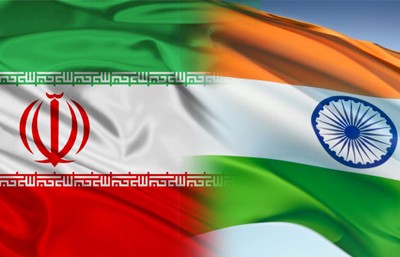 Despite aggressive attempts by the western world to squeeze Iran hard and distance its oil and gas fields from commercial markets, Iran still maintain its heft in global energy diplomacy. Energy starved economies of China, India and Japan are still importing crude in significant volumes despite series of sanctions imposed by the US and the European Union. There has been a fall in crude oil import from Iran but it has nevertheless manoeuvre its products and was able to sell 1.3 million tonnes of crude during 2012.
Despite aggressive attempts by the western world to squeeze Iran hard and distance its oil and gas fields from commercial markets, Iran still maintain its heft in global energy diplomacy. Energy starved economies of China, India and Japan are still importing crude in significant volumes despite series of sanctions imposed by the US and the European Union. There has been a fall in crude oil import from Iran but it has nevertheless manoeuvre its products and was able to sell 1.3 million tonnes of crude during 2012.
India has indeed taken steps to fill the gaps left by decrease in oil imports from Iran. For instance, Mangalore Refinery and Petrochemicals Limited (MRPL), erstwhile the top Indian importer from Iran, reportedly plans to import oil from Iraq and Latin America from next year, to offset the cut in supplies from Iran. Moreover, Iraq is expected to increase its oil supplies to India, by 30 per cent, while similar such arrangements are been made from Saudi Arabia as well. This could well be buffer arrangement for India in case further sanctions against Iran results into supply blockage.
Because, given the precarious energy situation of the country, India continues to hunt all possible options, including importing oil from Iran. And, this will be despite the fall in Iranain crude imports to India which came down by 39 per cent in a span of five years during 2008-13. During 2012-13, India imported 13.3 million tonnes of crude, down from 18.1 million tonnes of crude in 2011-12.
This fall was clearly sharper when compared to China and South Korea largely due to problems related to payment and insurance. And at the same time Iran sees India as a market, and is taking all steps possible to prevent India to entirely falling out of the Iranian oil basket. And, efforts towards streamlining processes from Indian purchases from Iranian crude and towards greater Indian participation in Iranian oilfields have been clearly visible for some time now. External affair minister Salman Khurshid's recent visit to Tehran for the 17th session of India-Iran Joint Commission sought to reaffirm India's practice of the much mentioned 'strategic autonomy' that allow New Delhi to strengthen its emerging strategic partnership with the United States but at the same time, to continue and build on its relationship with Tehran.
During this visit, Khurshid's Iranian counterpart Ali Akbar Salehi offered India a new production sharing regime for oil exploration. This is a move ahead of Iran's traditional practice of offering only service contract to foreign companies, wherein a pre-fixed rate of the fee is given for their effort in exploring and producing oil. A production sharing contract on the other hand, will give the foreign county ownership of oil explored and produced as also the freedom to ship it whenever they would like to. India's contract for exploring the Farsi Block, which is a service contract, if converted into production sharing regime could give India close to 13 trillion cubic feet of gas.
Iran definitely wants itself to be considered a reliable source of energy despite western sanctions as a result of continuing differences over in controversial nuclear programme. This was evident in efforts made to increase Iranian crude sale to India, during Iranian oil minister Rostam Qasemi's recent visit to India. Other inducement from Iran included offering of reinsurance to Indian refiners using Iranian crude as well as shipping of Iranian gas through LNG via Oman, due to unavailability of liquefaction gas terminal in Iran. And, India though mindful of the roadblocks accruing out of difficulties in payment mechanism, shipping and in finding suitable insurance in re-insurance covers, is intend on finding ways to continue crude imports from Iran.
India's ties with Iran have clearly been strained by the latter's tumultuous relationship with the United States, with the Iran factor equally imposing constraints on India-US relations. India has had to walk a diplomatic tightrope in balancing its relationships with these countries. For instance, while India and Iran are reportedly in talks for instituting a barter trade deal, that will enable New Delhi to purchase Iranian oil in exchange for Indian textile products, reports point towards simultaneous Indian efforts towards winning US waiver in sanctions targeting oil trade with Iran.
But at the end, it is easy to discern that the Iranians and the Indians, despite Indian votes against the Iranian nuclear programme at the UN, do converge on a number of subsets flowing purely out of mutual interests, based on the merits of the cases. And, the congruence inherent in India-Iran energy cooperation has been persistently emphasised and implemented by both sides
By Special Arrangement with : Observer Research Foundation (www.orfonline.org)